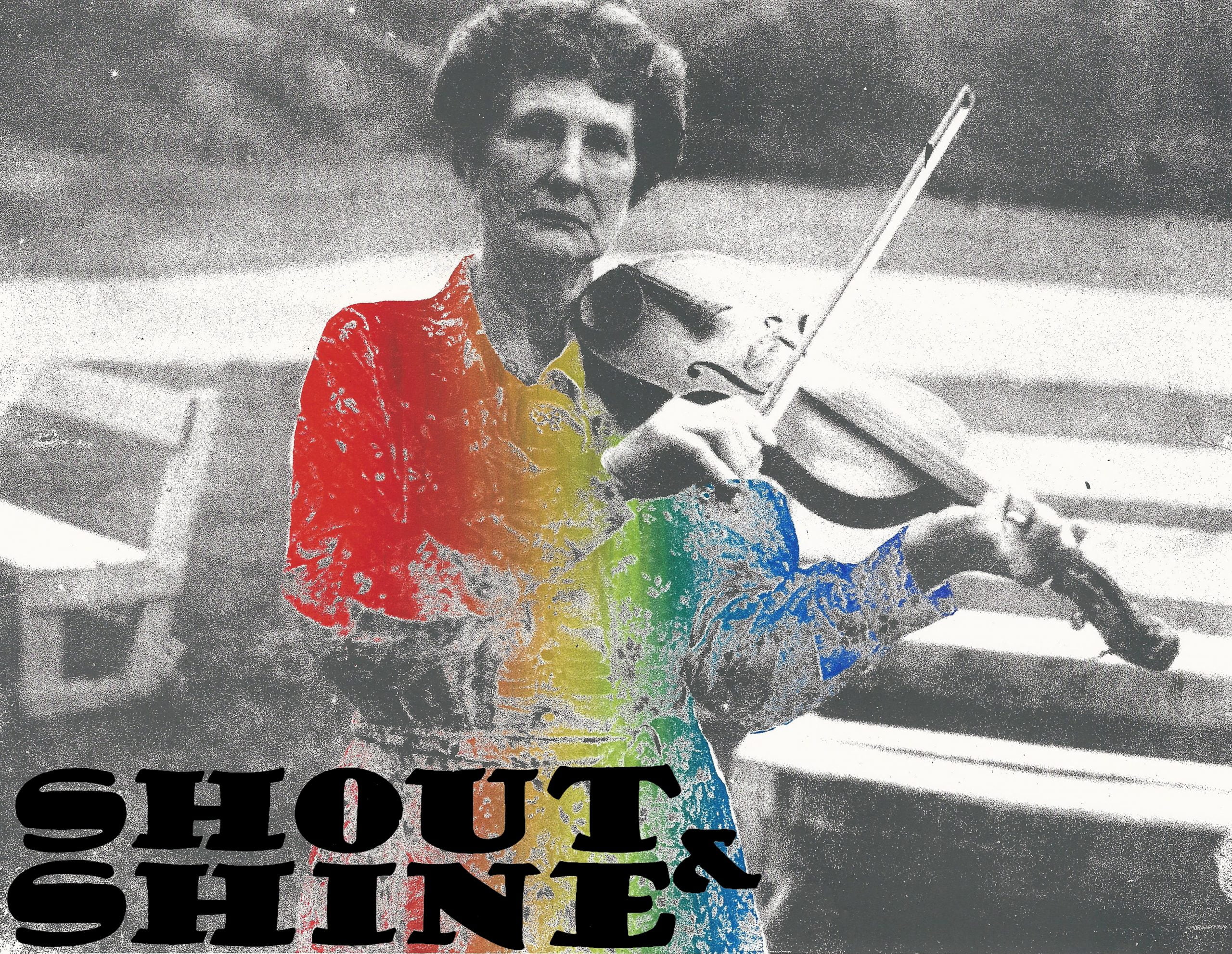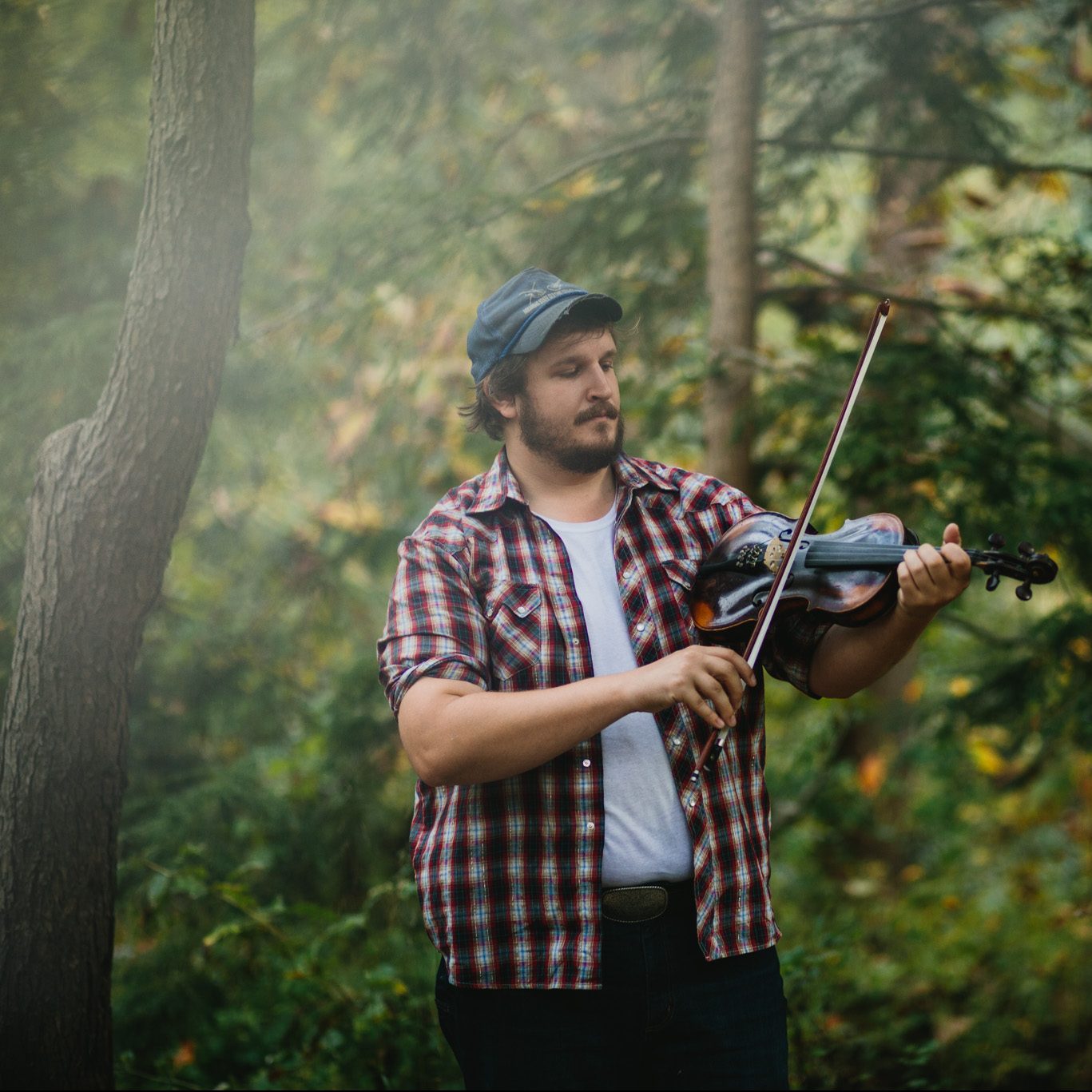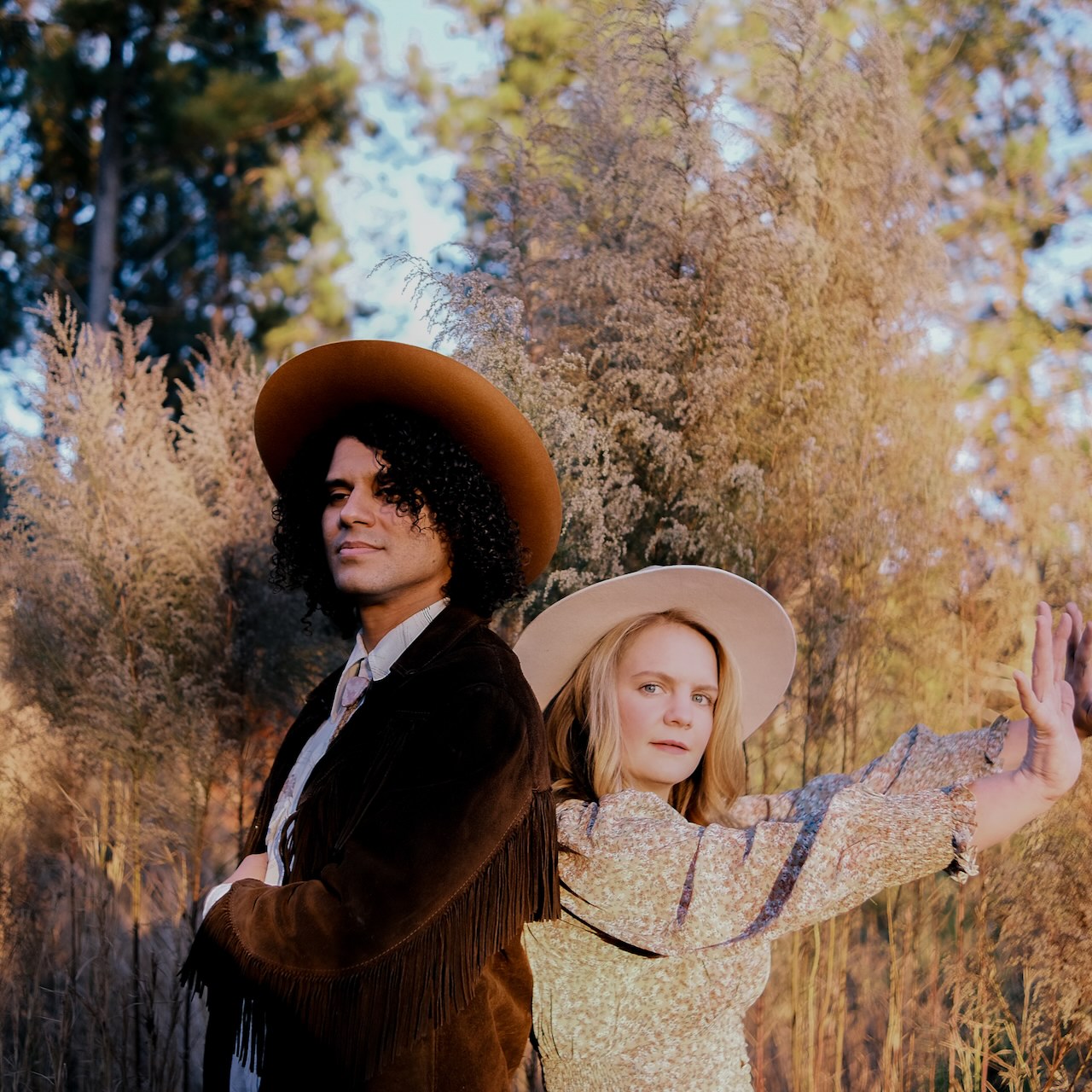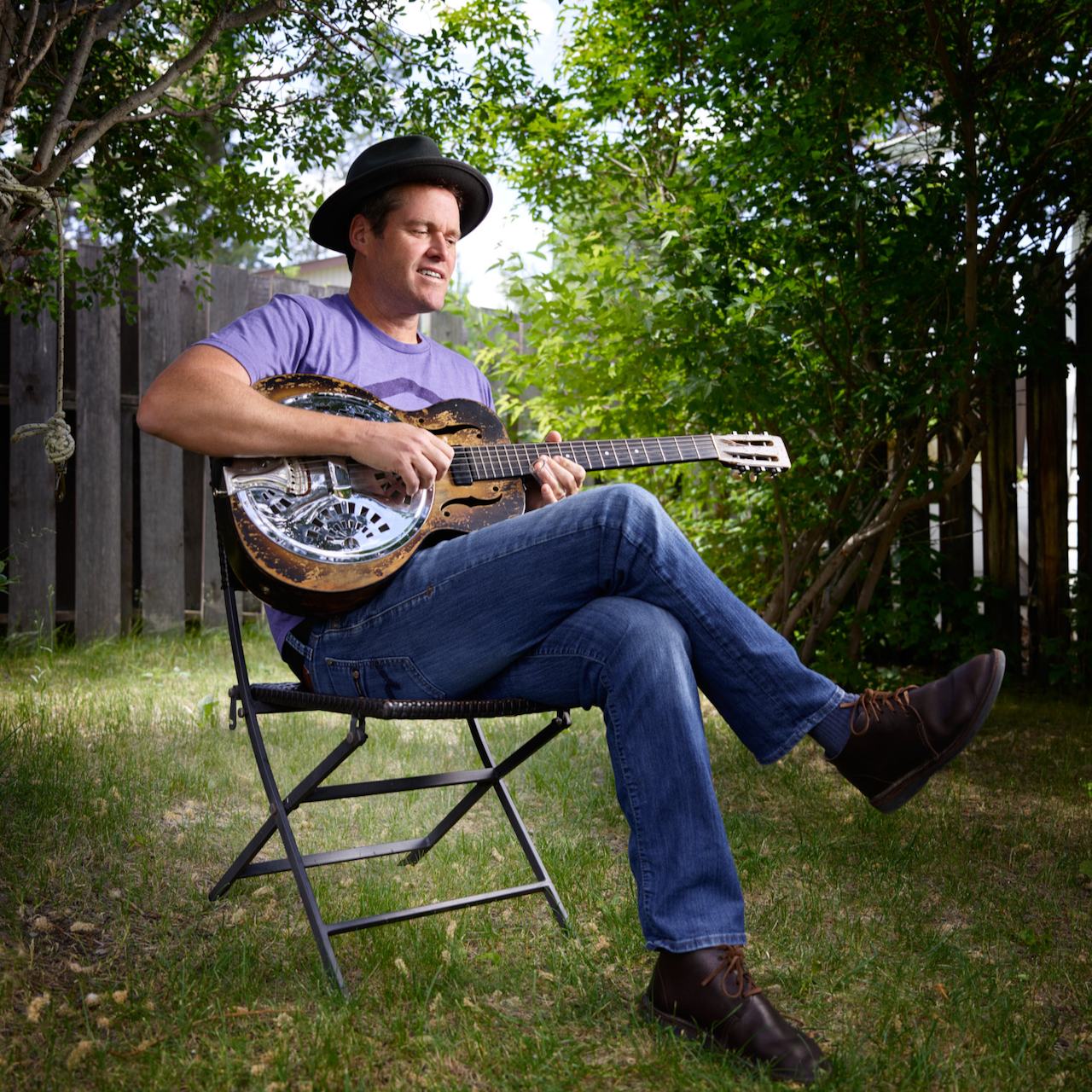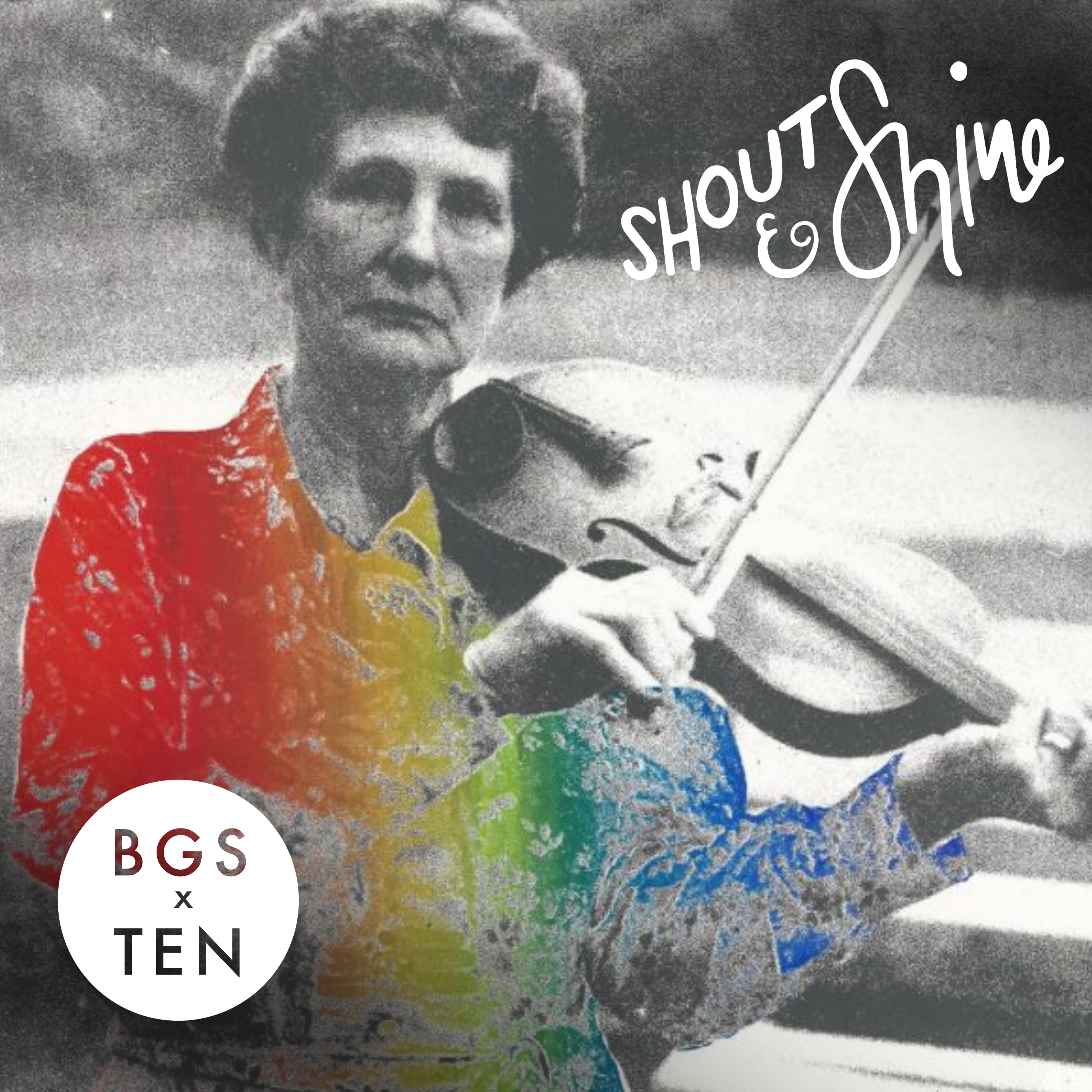The night before Rachel Baiman and I spoke about her new record, Shame, she played her Nashville album release show at the Station Inn, dressed in a Little House on the Prairie-esque dress she also wears on the album’s cover. She sang about “old white men” looking happily down on others, about sexual abuse, and about preferring jazz over heaven as a final destination after life — all unusual themes among the typical messaging of folky bluegrass-influenced songs such as hers.
The night after we spoke, she played in Chicago, Illinois. After the show, she followed up on our conversation with this message:
“During a quiet moment, someone yelled at me, ‘We don’t want your politics, just play music!’ Here’s the thing: Music doesn’t exist in a vacuum; it’s born of human experience. My experience right now is waking up each day worried about how I will afford healthcare, worried about what is happening to our planet as the temperature rises, and worried about the hateful rhetoric against women that our president has managed to normalize. And as much as some might enjoy the luxury of not having to think about these things, I don’t have the luxury of not being affected by these political decisions. For me, politics is personal and the personal is musical, therefore, the music is political. No, you can’t just have the music and not the politics.”
With Baiman, you know you’re going to get a healthy dose of fiery fiddling, thoughtful songwriting, and music with politics, but you won’t get a single ounce of shame.
Bluegrass, Americana … these roots music genres that are so close to all of our hearts, that we all have such strong opinions about, we end up — whether intentionally or not — shaming people for how they create their own music or how they express themselves through their music. I know there are the moral, political, and social aspects of shame that you’re calling out, but how does musical shame play into your identity as a musician and the aesthetic of your record?
Being female and not being from the South, there was sort of a decision that I made with the writing and the recording of this album to not worry about anything — to not give any fucks, essentially, about other people’s expectations or opinions or concerns. I think the reason I was able to do that is because it was such an open-ended project, because I was writing and recording purely for the sake of doing it. I wanted to see what would come about. As a result, there was a feeling of liberation behind the project and that became part of the whole concept of not being ashamed of anything, of being completely comfortable with who I am and what I have to say. There were some risks I was willing to take with this project that were sort of new for me, because of the way it all came about — the way I was feeling during the creation of it and the lack of confines around what it was supposed to be. In that respect, the idea of shame, or lack thereof, really did become a bit of a rallying cry around the whole project.

I can feel that listening to the record. Through the voice of the speaker, as it changes song to song, through the production, through the songwriting, it feels like you’re somewhat lovingly flipping off all of these presuppositions that listeners have about a record like this. I know that you have these traditional roots — you’ve studied these forms of fiddling that come from deep within the “tradition.” Where did you get that gumption?
[Laughs] It’s come full circle, in some ways. I grew up with a super-political background in my family. I was maybe brought up to be a little bit rebellious, in terms of my political, social opinions. I didn’t really embrace that for a lot of my adult life. I went down this road of playing music, studying music, and trying to learn those traditions, which I think is important. You can’t just walk in and push the envelope before you know what the envelope is. So I went down that path of trying to learn these amazing musical traditions and being a student of that.
When I was writing for this album, a lot of the writing and recording process was happening during the presidential campaign, the primaries, and continued all the way up until the general election. All of a sudden, there was this kind of reckoning between the person that I was brought up to be and the person that I was in high school, when I was more of an activist and really concerned with social justice and politics. I think, because of the state of the country right now, it came into focus for me that it was a huge priority in my life, that these things are incredibly important to me, and I needed to find a way to address them. Somehow, in this project, those two aspects of my life collided, musically, maybe for the first time.
People sometimes bristle when there are conversations about “women in bluegrass” and “women in roots music,” because their immediate response is to rattle off the names of famous female musicians as proof that women aren’t being marginalized. What is your response to those people when they truly don’t believe that these genres are not equal opportunity spaces for women?
Success stories are not an indication that there has not been an extreme challenge there. If you were to ask any of those famous female musicians about their experiences, I’m sure they’d have a lot to say about it. It’s also about giving voice to women’s issues beyond women’s issues in music. There have been many amazing female songwriters who talk about these things, but that doesn’t mean it’s not still an issue to be tackled.
One of the tough things about the bluegrass scene, specifically, is that it’s very much an instrumentalist scene. That’s an area where women haven’t seen as much success and find it much harder to break in. I don’t know why that assumption exists, but it seems like there’s acceptance and embrace of the female singer. But, for instance, even though Alison Krauss is a fantastic fiddle player, her success was about her vocals. I think that’s often the way it goes. There’s nothing wrong with a successful vocal artist, but there’s still a lot of difficulty for women who are trying to be instrumentalists.
There seems to be this strange phenomenon where people think that, if a woman writes heartbreak songs, she’s undermining the validity of her voice. Did you feel an inclination to keep the political material and the heartbreak material separate? Did you worry that writing a fluffy heartbreak song would make the activist themes less strong?
I didn’t worry about it too much, in the process. I was just writing what I wanted to write about and what felt valid and interesting to me, at the time. I did have a review come out the other day that was hilarious. It said, “Unsurprisingly, this an album of almost completely break up songs.” And I was like, “No! It’s not!” [Laughs] I think that people are hilarious with lyrics, because often they don’t listen to the lyrics. For instance, the song “Take a Stand” is not a break up song, but I would imagine that this guy listened and thought, “Ah. This is a sad love song.” It’s a song about inappropriate mentor relationships with young women, not a break up song! There are a few songs that I can see that, if you weren’t really checked in, you might think they were just break up songs.
We’ve seen this happen before, like in this review of Miranda Lambert’s most recent record where the reviewer said the record is clearly intended to be enjoyed more by women than by men.
What the heck is that?!
At the same time, people think there isn’t sexism in this music, because there are artists like Miranda Lambert putting records out. How do you unpack that for somebody who might be reading this column thinking, “But … heartbreak songs are for women.”
You can’t write music for the benefit of other people. If you start to worry about people’s perception, if you’re sitting there going “I wanna write a song, but I don’t want to write a love song because I’m a girl and people will expect that” — if you feel naturally inclined, if that feels like the most genuine thing you want to write about, that’s what you should do. All you can do for people is to point out the reality of what you’re doing. I try to tell the audience what the songs are about when I’m playing them, so people know what’s important to me. There are so many ways that your music can be construed, not only with societal constructs, but with weird music “things” we all decide to put on it. [Laughs] I’ve been pretty lucky with some of the press really understanding the idea and the feeling behind the album. I’m glad that’s been more of the narrative than the “an album of break up songs.”
I also wanted to ask you about “Let Them Go to Heaven.” The ubiquitous, Judeo-Christian themes through roots music can be exclusive to people of different walks of faith or spirituality. When I listen to this song, I feel like I’m hearing you, rather than just the character of the speaker of the song, telling these more traditional, more Christian fans and musicians that they can go to heaven, but you’d rather go to jazz yourself. Is that how you feel with this song?
Absolutely. I got this idea from an Ishmael Reed poem. I love the concept of music as a spiritual or religious experience. There is this tradition of Judeo-Christian religious threads going through these music traditions and that’s just part of the tradition. I think it’s something really beautiful. I love a lot of the old gospel music and bluegrass, but it is important that this music is for everybody and inclusive of whatever belief one might embody. For me, that is a lack of belief. I’m not a religious person, I struggle a lot with religion, in general — conceptually, no matter what religion. I guess I have more experience being an “outsider,” not having belief, living in the South and not having bought into the general religious consensus that exists in the South. I honestly think that it can affect your hire-ability in certain bands. It’s an expectation that you’re going to be bought in, or people take that as an indication of your moral standing or your ability to be a good person or a good person to work with.
For a lot of people, whether or not you are religious in any way, music and art are things people do for no practical reason. These are things that exist beyond the reasonable, rational fear of human thought. In that way, they’re kind of on that religious plane. You can’t really explain to someone why music affects you the way it does or why it means what it does to you. That’s my way of saying, “I’m not religious. I don’t get it. But here’s what I get and I think you get this, too. I can understand what you talk about when you’re talking about God, because I have this experience. Here’s where we can meet and talk about things that aren’t reasonable, rational, scientific phenomena.”
Photo credit: Gina Binkley

